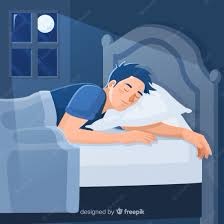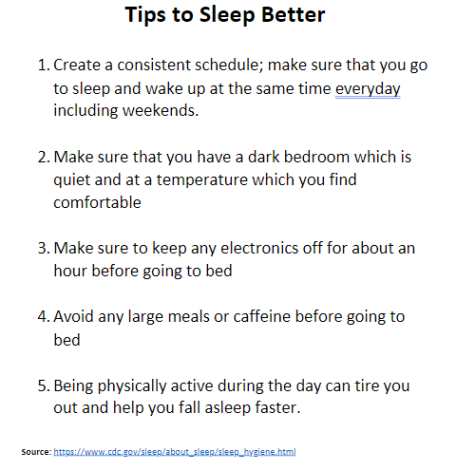Don’t Sleep on Sleep

A person sleeping soundly
Source:
March 3, 2023
At the end of a long day, we all feel the need to hit the hay and rest up for the next day. But why do we need to do this? According to the article, “What is The Purpose of Sleep?” by Healthline.com, our bodies require sleep because there are many processes that our bodies complete during our rest. Our brain processes information and the rest of our body repairs cells and releases hormones that promote growth. Sleep also allows our body to conserve any leftover energy from the day and use it towards the next.
What does losing sleep do?
According to the same article losing sleep can have a litany of effects such as daytime drowsiness, irritability, frequent yawning, and excessive sleepiness. Not only does it affect you physically but mentally as well. Losing sleep can lead to frequent mood swings, depression, and paranoia.
How does losing sleep affect academics?
Sophomore Gabriel Salazar feels that schools should hold presentations on proper sleeping strategies because sleep is as important to maintaining good grades as studying or paying attention in class. There is a chance that losing sleep can bleed into your schoolwork and your ability to think rationally. Not only does it affect your thinking, but it can also lead to you falling asleep in class and either disrupting the classroom with loud snoring or losing valuable class time and missing any lectures a teacher may give.
What is sleep debt?
According to the article titled “Sleep Debt: What is it?, Consequences, and more” posted on the website WebMD.com, sleep debt is what happens when a person builds a consistent habit of getting less that 7 hours of sleep every night. If a person were to sleep for 4 hours instead of 8 over the course of a whole week, they will have built up 28 hours worth of sleep debt. This debt will begin to accumulate until a schedule of proper rest of 7 or more hours is reached.
How can you fix your sleep schedule?
Once someone has accrued a large sleep debt, the only way that they can recover is through a gradual return to sleeping normal hours. Fixing your sleep schedule isn’t something that can happen at once.
Junior Samantha Fernandez said, “I used to lose a lot of sleep due to being overloaded with class work. The way that I recovered was by adding 1-2 hours to the amount that I normally slept until I ended up back at normal levels. I felt much better after I decided to fix my sleep schedule.”
What are your sleep schedules?
Sleep schedules vary from person to person based on their circumstances. Sophomore Jocelyn Cordova said that she didn’t really have a specific schedule but just slept when she felt tired. She feels unhappy with her current schedule because she thinks that if she doesn’t develop a consistent schedule, she will begin to fall behind with her sleep.
Junior Mark Torres said, “I recently dedicated myself to maintaining a proper sleep schedule, and it really changed my perspective on how important sleeping is.”





